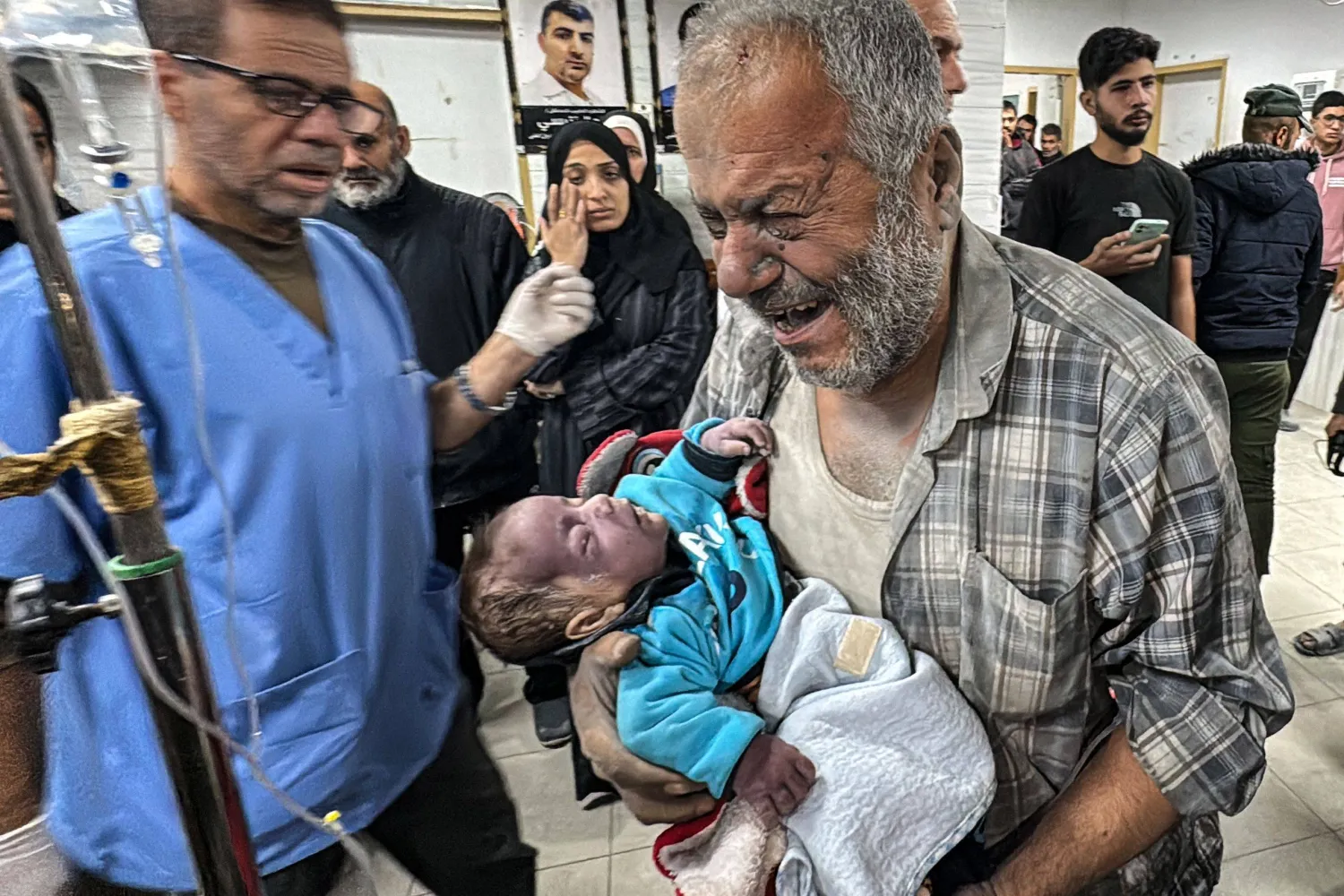The death toll in the Gaza Strip from the 13-month-old war between Israel and Hamas has surpassed 44,000, local health officials said Thursday.
The Gaza Health Ministry does not distinguish between civilians and combatants in its count, but it has said that more than half of the fatalities are women and children. The Israeli military says it has killed over 17,000 militants, without providing evidence.
The Health Ministry said 44,056 people have been killed and 104,268 wounded since the start of the war. It has said the real toll is higher because thousands of bodies are buried under rubble or in areas that medics cannot access, The Associated Press said.
The war began when Hamas-led militants stormed into southern Israel on Oct. 7, 2023, killing some 1,200 people, mostly civilians, and abducting another 250. Around 100 hostages are still inside Gaza, at least a third of whom are believed to be dead. Most of the rest were released during a cease-fire last year.
In Lebanon, the death toll from Israeli strikes and combat has surpassed 3,580 people, with more than 15,000 wounded, according to Lebanon’s Health Ministry. At least 51 people were killed Thursday in Israeli strikes on towns and villages across Lebanon.
The Israeli offensive in Gaza has caused heavy destruction across wide areas of the coastal territory, leading many to wonder when or how it will ever be rebuilt. Around 90% of the population of 2.3 million people have been displaced, often multiple times, and hundreds of thousands are living in squalid tent camps with little food, water or basic services.
Israel says it tries to avoid harming civilians and blames their deaths on Hamas because the militants operate in residential areas, where they have built tunnels, rocket launchers and other military infrastructure.
Palestinian officials and rights groups accuse Israeli forces of war crimes and crimes against humanity, and the United Nations’ top court is considering allegations of genocide brought by South Africa. The Israeli government adamantly denies the allegations, accusing critics of being biased against it.
In recent weeks, the amount of humanitarian aid entering Gaza has plummeted, prompting the United States to threaten to reduce its military support for Israel before backing down, citing limited progress. Experts have warned that isolated, war-ravaged northern Gaza could already be experiencing famine.
The United States, Egypt and Qatar spent months trying to broker a cease-fire agreement in which Hamas would release the remaining hostages in exchange for an end to the war. Those talks ground to a halt over the summer, with Israel and Hamas each accusing the other of making unacceptable demands.
US President-elect Donald Trump has vowed to end the wars in the Middle East without saying how. His previous administration gave unprecedented support to Israel and Prime Minister Benjamin Netanyahu’s hard-line policies toward the Palestinians.
Death Toll in Gaza from Israel-Hamas War Passes 44,000

A Palestinian man reacts as he carries a young victim inside the Kamal Adwan hospital following an Israeli strike that hit an area near the medical establishment in Beit Layia in the northern Gaza Strip early on November 21, 2024, reportedly leaving dozens of people killed or unaccounted for. (Photo by AFP)

Death Toll in Gaza from Israel-Hamas War Passes 44,000

A Palestinian man reacts as he carries a young victim inside the Kamal Adwan hospital following an Israeli strike that hit an area near the medical establishment in Beit Layia in the northern Gaza Strip early on November 21, 2024, reportedly leaving dozens of people killed or unaccounted for. (Photo by AFP)
لم تشترك بعد
انشئ حساباً خاصاً بك لتحصل على أخبار مخصصة لك ولتتمتع بخاصية حفظ المقالات وتتلقى نشراتنا البريدية المتنوعة







